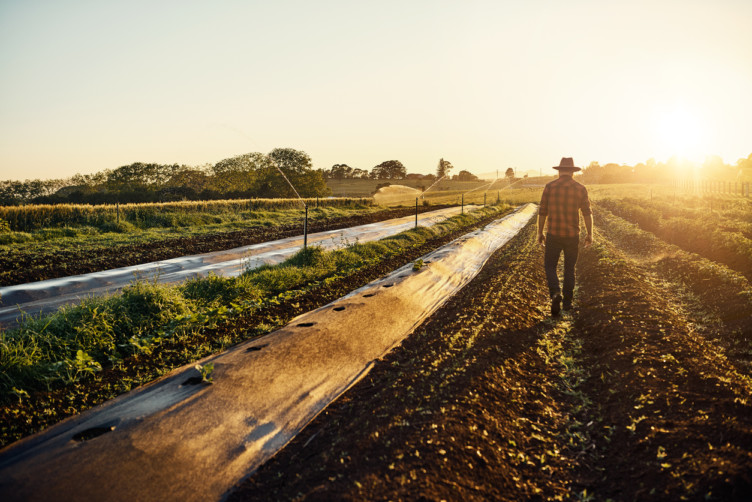Eating Meat Doesn’t Harm the Environment as Much as You Think

If you’re ready to give up meat in return for a lower environmental impact, wait before you throw out that steak! A study[1] reveals that being vegan might not be enough to minimize environmental impact of food.
Major points of the study:
- Meat eaters had a larger footprint than vegans and vegetarians, with exceptions. Where and how you source your food matters, and what you eat (local pastured beef vs. fake soy hot dogs) affects environmental impact.
- Omnivores consumed more alcohol, sweets, and desserts and ate fewer vegetables than their vegan and vegetarian counterparts.[2] That tells us that other studies comparing meat eaters with vegans and vegetarians may be missing the mark. Outcomes have less to do with eating meat and more to do with being conscious about where your food comes from at all.
- Generally, people think vegans have the lowest environmental impact, but lacto-ovo vegetarians (vegetarians who will eat milk and eggs) and vegans (people who eat zero animal products) have similar footprints. Participants who consumed only fruits (fruitarians – It’s a thing) had the highest impact of all groups. Omnivores as a group had a higher impact, but when examining individual diets, factors other than animal products, like quality of food and how it was produced, determined environmental impact.[3]
How this study is different
Until now, most studies comparing omnivores, vegetarians, and vegans haven’t separated the effects of animal products vs. the effects of other eating habits and lifestyle. This study considered the individual diets of a population, which clues us into the true impact of actual eating habits, not just broad stroke categories.
Someone who chooses an eating philosophy, any philosophy at all, at least pays attention. Omnivores who eat consciously and omnivores who will eat whatever they want with no concern for health or environment aren’t going to end up with the same footprint or waistline.
Same goes for vegans. Some pile their plates with vegetables, others eat french fries and sugary soy ice cream. You can’t make generalizations as if they’re all following the same program.
The researchers found that vegans and vegetarians were more similar than previously thought, and when analyzing individual eating habits, they found that proper sourcing of food matters even more than broadly categorized nutrition habits.
Eating meat ethically
Animals in factory farms are crowded, sick, and medicated. Their living conditions creep into the land and water of the people living nearby, causing disease.[4]
You won’t find these problems on local farms where grass-fed, ethically-raised animals graze. Not only do sustainable conditions reduce environmental impact, but you also end up with better, more nutritious meat. Small-scale farms produce meat with better omega-6 to omega-3 fatty acid ratios, which reduces risk of cardiovascular disease, cancer, inflammation and autoimmune flares.[5]
Organically raised meat aren’t pumped full of antibiotics and growth hormones, and it tastes better.[6]
Done right, raising animals improves the environment by building the soil. Depleted soil doesn’t grow vegetables, so farmers have to use chemical fertilizers that disrupt the ecosystem. Poor soil also doesn’t hold moisture or retain nutrients. Water rolls off of hard, brittle fields, causing flooding and erosion.
If you’re conscious about it, you can eat meat while not only reducing your environmental footprint, but also improving the environment. Look for small-scale, local farms where the farmer will invite you into the barn to look around. If you don’t have time for that, find smaller, sustainable companies that will talk to you about where they source their meat. Butcher Box and U.S. Wellness Meats come to mind. Use your dollar as a vote for continued production of the things you buy. The animals, your body and the farmland will be happier for it.
READ NEXT: Glyphosate: Why Eating Organic Really Does Matter
Sign up for early access to sales, product launches, the latest Bulletproof news and more!



